
Common Symptoms Of Alzheimer’S Disease
Alzheimer’s disease is a neuro-degenerative disease associated with a decline in the cognitive functions of the brain. It leads to gradual memory loss wherein the long term memories remain intact but the patient’s short term memory starts to fail him. So, he may ask the same question repeatedly or get lost even in familiar places. He struggles to remember the names of his near and dear ones and tends to forget addresses and phone numbers. The thinking and judgment faculties of the brain are impacted. Therefore, the patient is unable to make small decisions for himself. Mood swings are common in such patients. He gradually loses sense of hygiene and is often seen wearing dirty clothes. In the late stages of the disease, an Alzheimer’s patient suffer from hallucinations and loses his ability to communicate.

Role Of A Caregiver In Alzheimer’S Disease
A person who is a caregiver to an Alzheimer’s patient has to take care of several things: • He has to help in maintaining the quality of life of the patient suffering from this disease. • He should be totally aware of the various signs and symptoms of the disease. • He should know how the disease progresses and the treatment of the disease at its different stages. • He has to take care of the daily needs of the patient, keep a track of his medical appointments, and administer him medicines at the correct time. • He has to be a pillar of support and strength for his loved one suffering from Alzheimer’s disease. • He has to plan the finances to meet the medical and other expenses of the patient.
- Important notification about information and brand names used in this slideshow!
- Photo courtesy of Rosie O'Beirne by Flickr : www.flickr.com/photos/rosieobeirne/4090200698/
- health.usnews.com/health-news/family-health/brain-and-behavior/articles/2009/03/25/10-things-you-should-know-about-alzheimers-disease
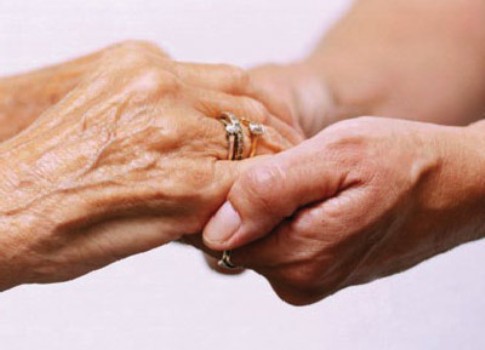
Challenges faced by an Alzheimer’s patient’s caregiver
The challenges faced by a caregiver looking after an Alzheimer’s patient are very different from challenges faced during looking after patients with other diseases. In Alzheimer’s, the patient can do his chores on his own at times, and at other times, he becomes totally dependent upon his caregiver. These fluctuations are part and parcel of Alzheimer’s disease. A caregiver who is not familiar with these fluctuations may feel that the patient is faking and may view the patient with suspicion. Therefore, it is imperative for the caregiver to know about the different symptoms and phases of Alzheimer’s disease. It is also important for the caregiver to understand that the disease is progressive in nature and would not heal with medicines. In fact, the medicines have only a supportive role to play and the patient’s condition will keep deteriorating. So, the caregiver is in for a long haul and should be mentally prepared for this. It is also important for the caregiver of an Alzheimer’s patient to understand that the patient not only need physical help but also needs emotional support from him.
- Important notification about information and brand names used in this slideshow!
- Photo courtesy of Lola Judy by Picasa : picasaweb.google.com/lh/view?q=caregiver&uname=109008901828086469253&psc=G&filter=1#5700720897892303458
- www.nia.nih.gov/sites/default/files/understanding_alzheimers_disease.pdf
- http://www.webmd.com/alzheimers/guide/role-caregiver

The Caregiver May Have To Deal With Sundown Syndrome In Certain Patients With Alzheimer’S Disease
Around 20% of patients suffering from Alzheimer’s disease experience sundowning. Sundown syndrome is common in the middle stages of Alzheimer’s disease and often improves as the disease progresses. Sundowning means that the condition of such patients deteriorates when the sun goes down and improves in the morning. Their dementia worsens and their confusion increases at night. Because of sundown syndrome, these patients cannot sleep well at night and tend to wander. They become increasingly anxious, restless and delirious. This makes them yell at the caregiver. The patient may even become combative at times. It is a common cause of burnout seen in caregivers of Alzheimer’s patients. Keeping the house well lit at night and closing the drapes before sunset can help in calming the patient. Similarly distracting his attention by involving him in his favorite activities can also help preventing an episode of sundown syndrome.

Putting Up Pictures Of Close Ones Helps Patients With Alzheimer’
The most important hallmark of Alzheimer’s disease is the fading memory. As the disease progresses, the patients fails to remember the names of his near and dear ones. In the later stage of the disease, he is unable to recognize even the close family members and reacts to them as if they are complete strangers. This can be quite painful for the people who have cared for him all his life. One way of helping an Alzheimer’s patient is by putting up pictures of his close ones in his room after writing their names underneath. This may help the patient in remembering their names. You can also put up the pictures of close relatives of the patient through various phases of their life. As the short term memory fails but the long term memory remains intact in Alzheimer’s, the patient may be able to recognize his close ones by their old pictures.

Legal Documents Are Essential To Make Healthcare And Other Decisions On Patient’S Behalf
As the Alzheimer’s disease progresses, the patient’s cognitive functions decline, there is clouding of his mental faculties and he is no longer in a position to make independent decisions. The patient increasingly relies on his caregiver to make important decisions. Therefore, it is extremely important to do some advance planning and get the legal documents made when the patient is still in a position to manage his legal and financial affairs. It is a difficult decision but it would empower the caregiver to make important healthcare and financial decisions for the patient when his disease is in an advanced stage.
- Important notification about information and brand names used in this slideshow!
- Photo courtesy of Joey Giagnola by Picasa : lh5.googleusercontent.com/-xZ9U8S4W0wA/UZ0zTG8LNFI/AAAAAAAAAj4/WXE_-vt6GAs/Ohio_Health_Insurance_Marketplace_Application_Explained.jpg
- health.usnews.com/health-conditions/brain-health/alzheimers-disease/managing
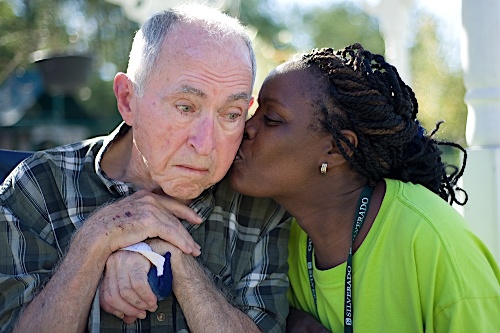
Caring For An Alzheimer’S Patient In His Home
Almost 70% of Alzheimer’s patients choose to stay in their own home, whether alone or amidst their loved ones. But, as their disease advances, it becomes increasingly difficult for them to complete their daily chores independently. Using the bathroom, changing clothes and maintaining personal hygiene becomes an effort. Same goes for eating and taking medicines on time. Family members can assist the patients to an extent but that is possible only if they are living with the patient. But if the patient is living alone, there has to be a caregiver to look after the patient. There are many home health agencies and referral services which provide trained nurses or home health aides. These agencies charge on an hourly basis and can be a great help to the family of an Alzheimer’s patient. Similarly, there are many companies which home-deliver the food on a chargeable basis.

Assisted Living Facility Can Also Be An Option For An Alzheimer’S Patient
Assisted living facilities are particularly useful for those Alzheimer’s patients who are in an advanced stage of their disease and it is difficult to take care of them at home. Even though they provide all the amenities available in a nursing home like lodging, meals and other activities, these facilities are comparatively easy on the pockets. They supervise Alzheimer’s patients 24 hours, provide home like facilities, assist the patients with their daily chores and yet they are designed in such a manner that it promotes independence in the residents. Most of these facilities provide three meals a day, monitor patient’s medication, take care of their laundry and their personal hygiene and provide emergency care round the clock.
- Important notification about information and brand names used in this slideshow!
- Photo courtesy of The Pointe At Kilpatrick by Flickr : www.flickr.com/photos/thepointeatkilpatrick/5049297739/
- www.webmd.com/alzheimers/assisted-living-facilities
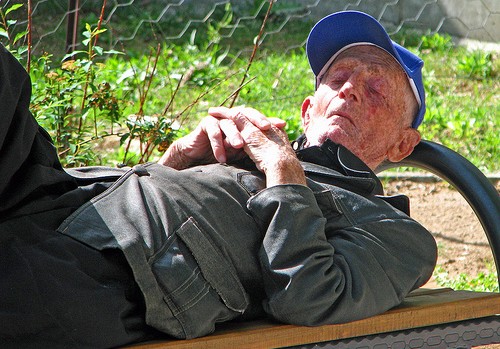
Challenges Faced By A Caregiver In The End Stage Alzheimer’S Disease
Although taking care of an Alzheimer’s patient is never an easy task, it becomes all the more difficult and challenging as the patient approaches the end stage of his disease. Even though the patient still speaks occasionally, he is unable to carry on any meaningful conversation. His muscles become rigid, swallowing becomes impaired, head droops down and he cannot even smile. He faces a lot of difficulty in eating and suffers from constipation and shortness of breath. This stage is particularly painful to the caregiver who has been supporting the patient all through his disease. Apart from taking care of most of the activities of the patient, he has to take complex decisions while all the time suffering from the dreadful feeling that the end is near. This stage may vary from a few weeks to several months and takes a huge toll on the caregiver’s mental and physical health.

Signs Which Show That The Caregiver Is Under Stress
Being a caregiver to a patient suffering from Alzheimer’s disease can be quite taxing. The caregiver has to wear several hats at the same time. This may lead to a burn-out. Some of the common signs which may point that the caregiver is under stress include: • Irritability • Mood swings • Depression • Difficulty in concentrating on a particular thing • Difficulty in sleeping • Headache and body pain • Social withdrawal It is essential for the caregiver to find out sometime every day to indulge in his hobbies. Although taking care of an Alzheimer’s patient takes away all his time, the caregiver should realize that he is also human and needs some time of his own. He should realize that it is not possible for him to take care of everything and should be ready to accept help. He should meet his friends, share his problems and if possible, join a local caregiver support group.



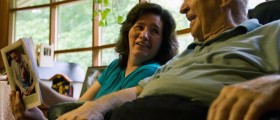


















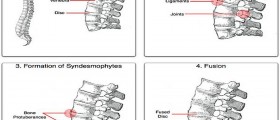



Your thoughts on this
Loading...